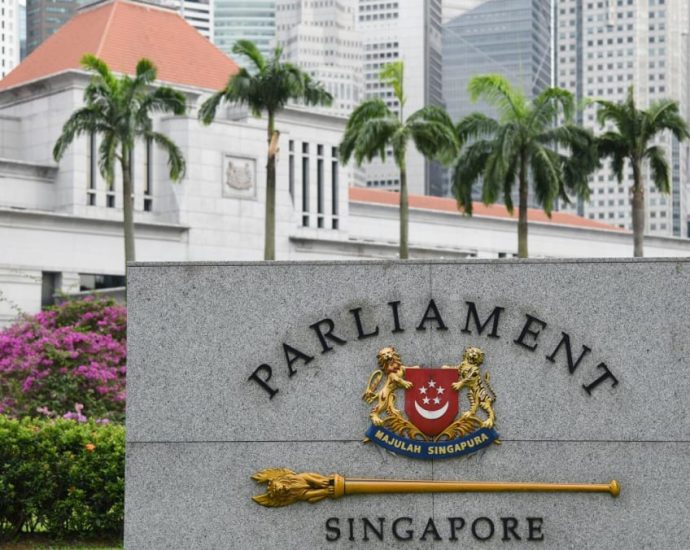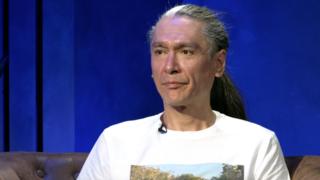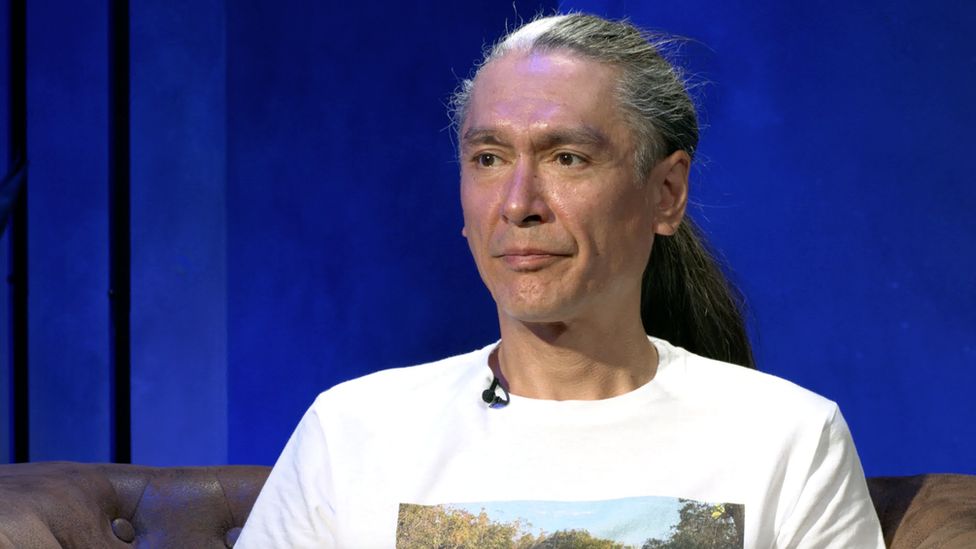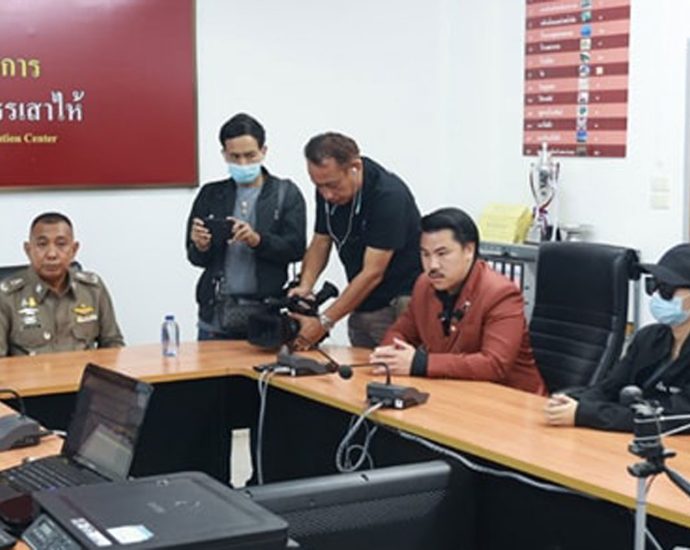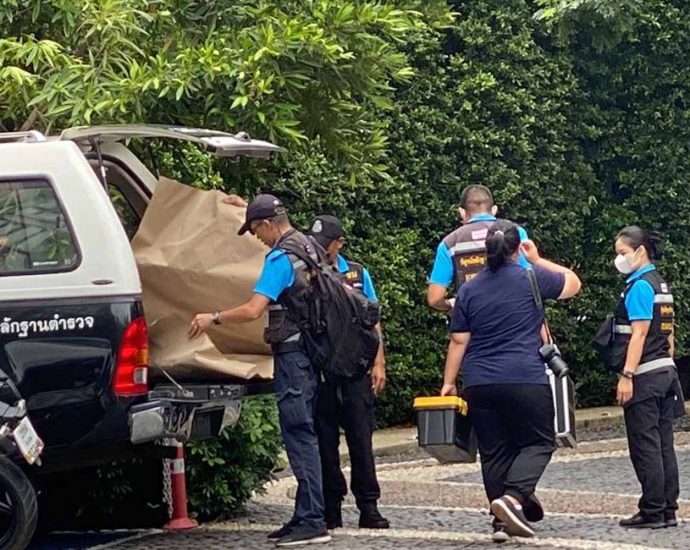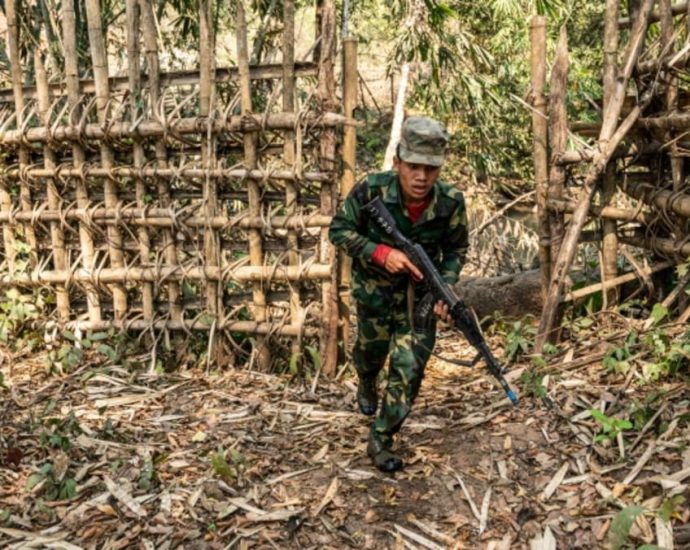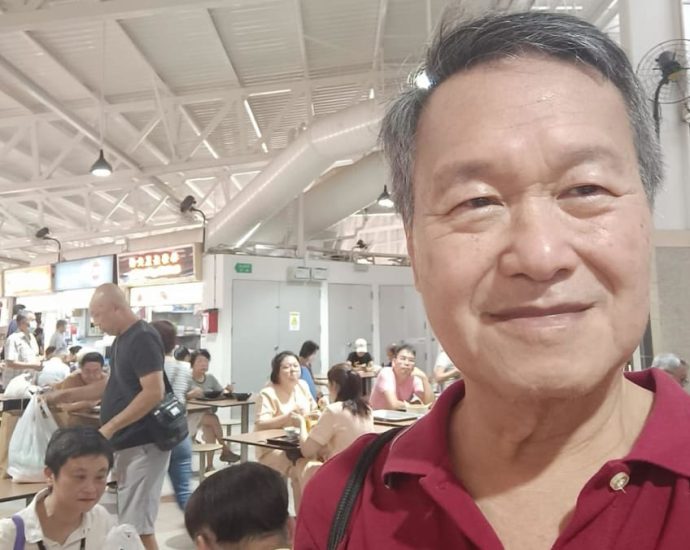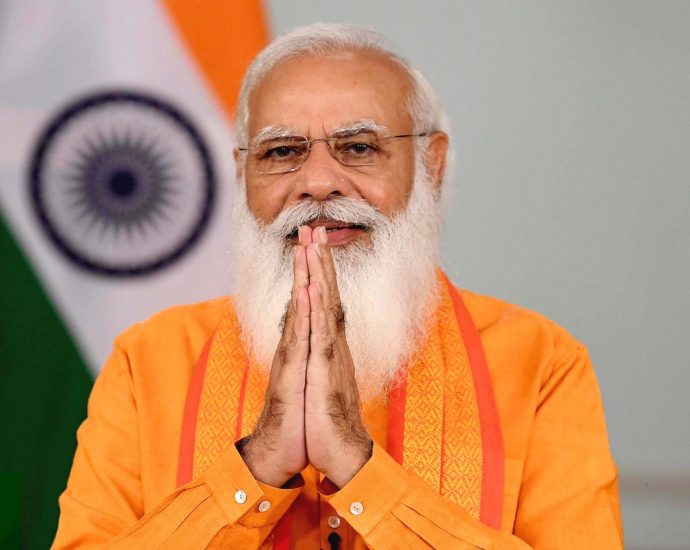Suitors are courting Malaysiaâs state plantation giant Felda – what this could mean for PM Anwarâs reform agenda
“FELDA DEPOSIT” BROKEN The mismanagement at the plantation group and the backlash from the fiasco at state-owned 1Malaysia Development Bhd (1MDB) broke the so-called “Felda deposit” with settlers turning their backs on UMNO. It led to the fall of the Najib-led National Front government in the 2018 general election, pushingContinue Reading
PM Lee to give ministerial statement in parliament on Iswaran probe and MPs’ extramarital affair
SINGAPORE: Prime Minister Lee Hsien Loong will deliver a ministerial statement in parliament on Wednesday (Aug 2) regarding the corruption probe involving Transport Minister S Iswaran, as well as the resignation of two ruling party lawmakers over a cheating scandal. Mr Iswaran was arrested by the Corrupt Practices Investigation BureauContinue Reading
Myanmar: Aung San Suu Kyi jail term reduced after some pardons
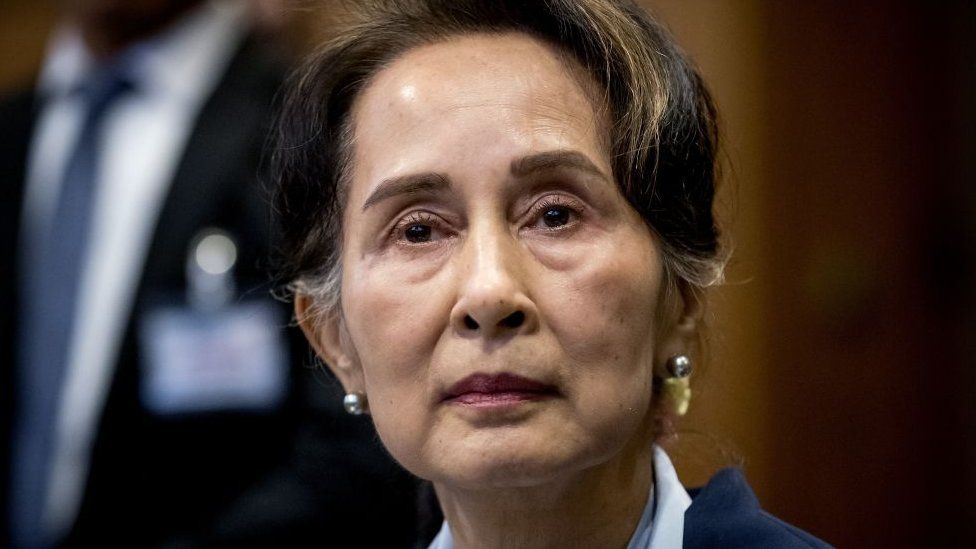 Getty Images
Getty ImagesFormer Myanmar leader Aung San Suu Kyi has been pardoned in five of 19 charges brought against her by the military.
The pardon, part of a seasonal amnesty, will reduce her 33-year jail sentence by six years.
Former president Win Myint, who was ousted along with Ms Suu Kyi, also received a reduced jail sentence after getting two of his charged pardoned.
Periodic amnesties have been announced before, but this is the first time they have included Ms Suu Kyi and Mr Myint.
The military junta has made other concessions in what appears to be an effort to revive stalled diplomacy efforts.
Last week, Ms Suu Kyi was moved from prison to house arrest in the capital Nay Pyi Taw.
The 78-year-old Nobel laureate has been detained by the military since February 2021 following the coup that ousted her.
The coup triggered civil war in the country, and has led to the deaths of thousands of people.
The military junta has also been accused of unleashing disproportionate violence against those opposing its rule.
Some countries, notably China and Thailand, have started a dialogue with the junta, but these initiatives have been criticised for excluding Ms Suu Kyi’s party which won a huge majority in 2020 elections.
The extent of the win led the military to allege election fraud – which they then used as a justification for the coup.
Any negotiations of a compromise with the international community would almost certainly require the involvement of Ms. Suu Kyi. She has, however, been kept isolated since her arrest after the coup. Almost no news had emerged about her condition for more than two years.
Ms Suu Kyi is appealing the convictions to the other offences, which ranges from election fraud to corruption,
All the charges – which she has denied – were brought against her in closed-door, military-run trials. Rights groups have condemned the court trials as a sham.
The military junta on Monday postponed an election promised to be held by August this year following its coup two years ago.
Related Topics
-
-
6 December 2021
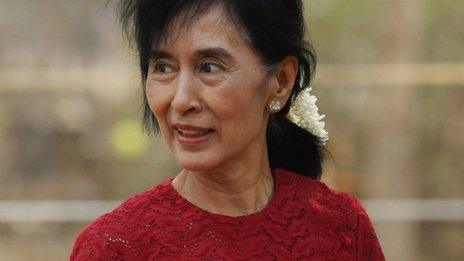
-
Senior cop dismissed, woman recounts harrowing experience
PUBLISHED : 1 Aug 2023 at 14:59
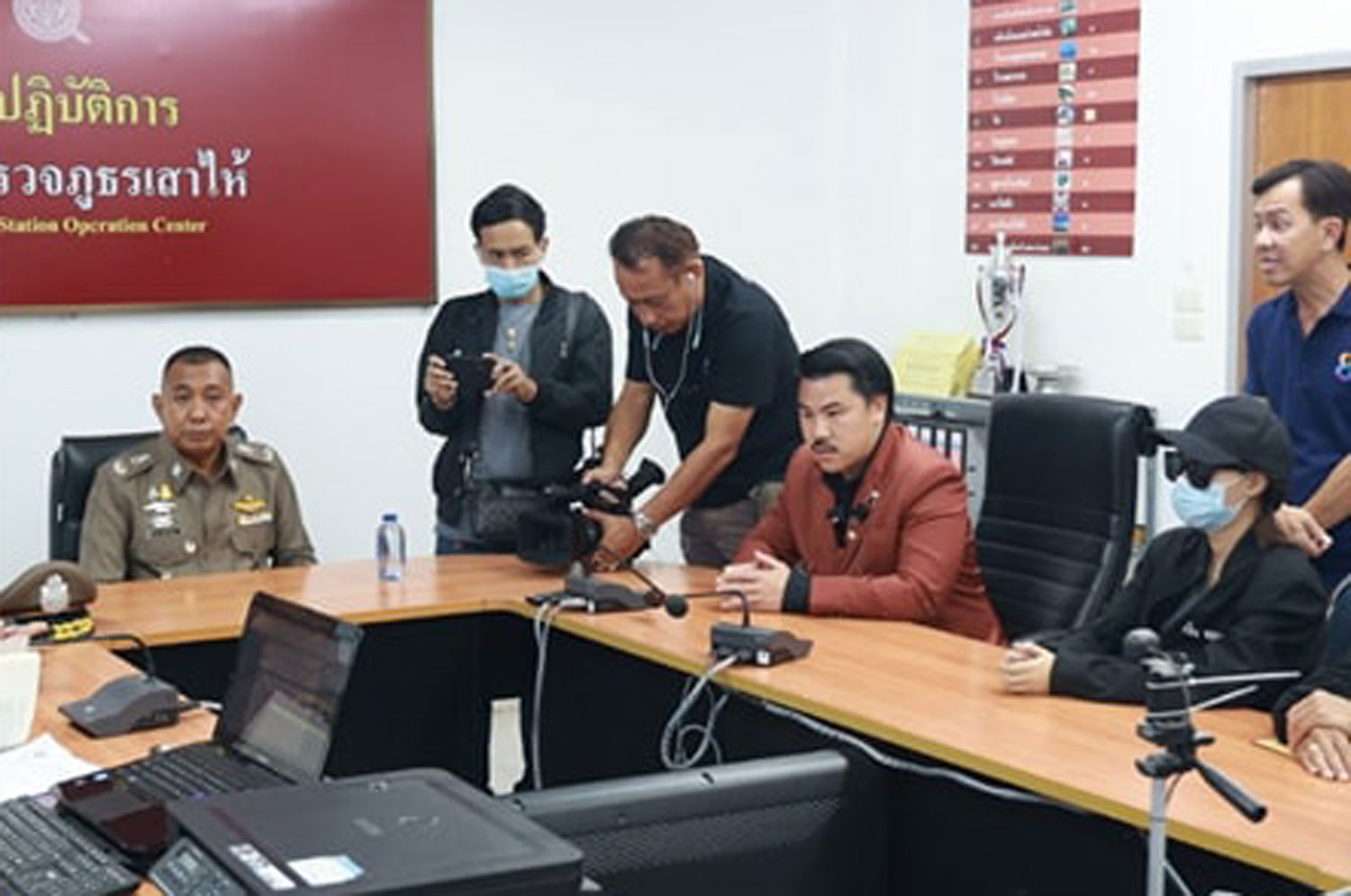
A police lieutenant colonel has been dismissed from the force after allegedly demanding 100,000 baht and sex from a woman motorist in exchange for dropping a charge of trespassing, after her car broke down one night in Saraburi province.
The woman also recounted a horrifying experience of a strange man coming to her aid on the dark road and then attempting to molest her, and her escape that led to the charge of unlawful entry.
The woman, whose name was withheld, sought help from social media advocate Kanthat Pongpaiboonvej, alias Kan Chompalang, who took her to file an initial complaint in Saraburi and then with deputy national police chief Pol Gen Surachate Hakparn.
The woman said the harrowing events occurred in October last year in Saraburi province.
She was driving home at night when her car developed a problem and the battery went flat, stranding her alongside the road.
A man came to her rescue and towed her car to a house in an isolated street. He told her he would get a gallon container to buy petrol. As her mobile phone’s battery had also run out, she asked to borrow a charger. He told her to get it from inside a room. When she entered the room he immediately locked the door and tried to sexually molest her.
She evaded his clutches by asking to use the bathroom and then fled from there, climbing over a fence into the neighbouring property. The owner of that house then accused her of trespassing at night.
She was taken to a police station to face the trespassing charge. While there she filed a charge of sexual molestation against the owner of the first house, who had initially come to her rescue.
The woman said that after learning what had happened, the owner of the second house applied to withdraw the unlawful entry charge, but police said it was a criminal offence and the charge could not be dropped.
A police lieutenant colonel later approached her and said he could help. He allegedly demanded 100,000 baht in exchange for not taking the case to prosecutors. She did not have that much money and negotiated it down to 10,000 baht. The police officer then demanded to have sex with her, she said.
Mr Kanthat later took her to file an initial complaint with Sao Hai police station in Saraburi province against the accused officer.
Pol Maj Gen Wichit Boonchinnawutthikul, chief of Saraburi police, who also questioned the victim, said on Tuesday that the accused lieutenant colonel was a police inspector assigned to administrative work at Muang police station before being moved to assist at Sao Hai police station.
The accused officer was earlier the subject of an internal fact-finding inquiry for alleged fraud. The probe panel found him guilty and had recommended he be dismissed from the force. A decision was pending when the woman filed her complaint.
Pol Maj Gen Wichit promised justice for the woman and said no officer who caused damage to the police force would be protected .
Khaosod Online reported that Pol Maj Gen Wichit signed an order dismissing the accused officer after Pol Gen Surachate asked him to handle the case carefully and ensure justice for all sides.
Woman found dead in hotel was suicidal, says husband
Japanese man denies any conflict with late wife, Chiang Mai police awaiting autopsy report
PUBLISHED : 1 Aug 2023 at 14:47

CHIANG MAI: Police have yet to verify whether a Japanese woman committed suicide as her husband said after she was found dead in their hotel room on Monday.
The Japanese husband of Ami Hosoe, 25, told police that she suffered from depression and had tried to strangle herself with the cord of a hairdryer in their hotel room on Sunday night.
At the time, he said, he was able to save his wife and then hid the hairdryer, according to Pol Maj Gen Thawatchai Pongwiwatanachai, commander of Chiang Mai police.
The Japanese man denied having had any dispute with his wife, Pol Maj Gen Thawatchai said on Tuesday.
The couple briefly left their hotel room for a convenience store at 3.45am on Monday, the husband reportedly told police.
When they returned to their room, he went to bed. When he woke up on Monday morning, he said, he found his wife dead in the bathroom.
He told police that his wife was lying face down in a bathtub, with a phone charging cable around her neck. He reportedly moved the body and left it face up on the hotel room floor before calling hotel staff.
Police were checking the woman’s medical records to determine if she suffered from depression. They are also waiting for an autopsy report from Maharaj Nakorn Chiang Mai Hospital, said Pol Maj Gen Thawatchai.
The couple had a business in Bangkok and were in Chiang Mai for a vacation. They checked into the Parc Borough hotel on Mahidol Road in Muang district on Saturday.
Pol Maj Gen Thawatchai said security video showed that no one else entered the couple’s room before the report of the death.
They has been scheduled to check out at noon on Monday, he added.
Extending state of emergency, delaying promised polls: Is the junta losing its ground in Myanmar?
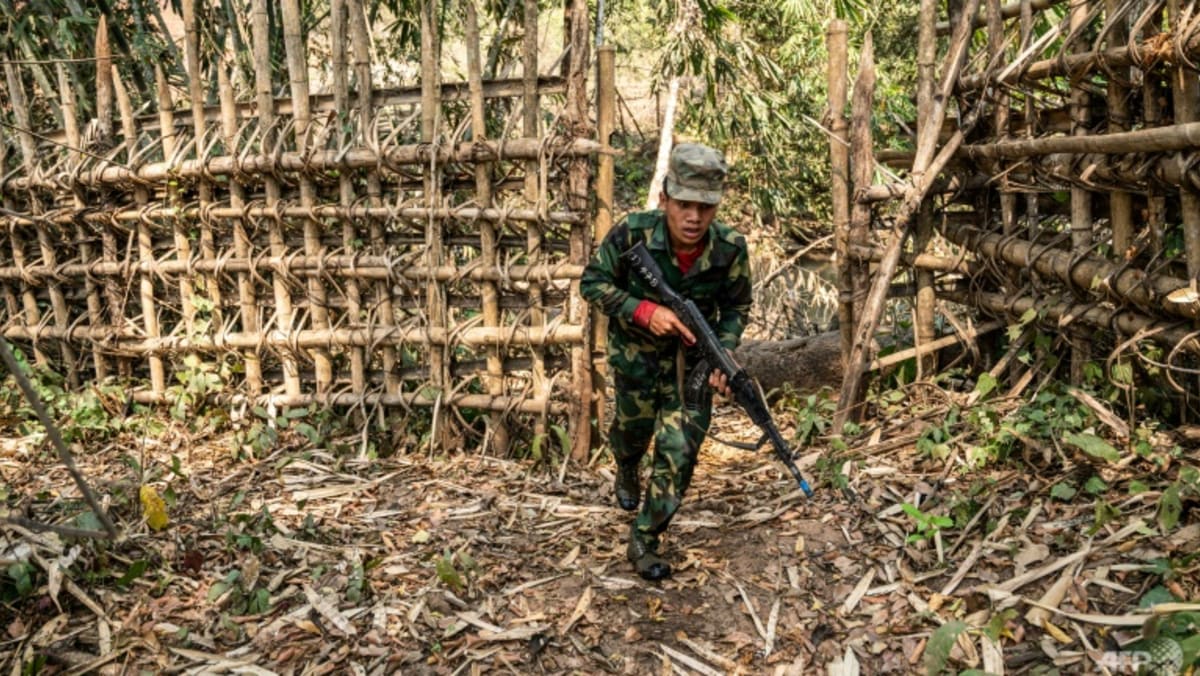
MILITARY JUNTA LOSING CONTROL
The junta, which seized power in a coup that deposed the civilian government led by Ms Aung San Suu Kyi more than two years ago, had earlier pledged that fresh polls would be held in August.
But the regime will likely wait for the 2020 election results to expire in 2025, said Mr Amara Thiha, a doctoral researcher at the Peace Research Institute Oslo.
“That is to avoid the legitimacy contestation if the election happened earlier,” he told CNA’s Asia Tonight on Monday.
“So I expect the extension every six months until 2025. And I’m not surprised about the extension at all.”
Mr Amara Thiha noted that the pace of election preparations is slow and large swathes of the Southeast Asian country are under the control of resistance forces.
“With this given security context, we are not going to see an election anytime soon,” he added.
Junta chief Min Aung Hlaing has acknowledged that much of the nation is not under full military control, according to state media. He said fighting continued in Sagaing, Magway, Bago and Tanintharyi regions as well as Karen, Kayah and Chin states.
Tan Kin Lian may not automatically qualify to run in Presidential Election: Observers
SINGAPORE: While former candidate Tan Kin Lian seems confident that he qualifies to run in the upcoming Presidential Election, political analysts said his path is not assured. On Sunday (Jul 30), Mr Tan announced via a press release that he had applied on Jul 11 through “a proxy” for a certificateContinue Reading
Jail for man who refused divorce but brought another woman home and threatened wife and kids
SINGAPORE: A man was not on good terms with his wife but refused to get divorced, and behaved in a way that his spouse had to get personal protection orders. He also exhibited family violence against his wife and children and brought another woman home. The 47-year-old man was sentencedContinue Reading
Flights cancelled, thousands advised to evacuate as Typhoon Khanun nears Japan’s Okinawa
TOKYO: Flights were cancelled and tens of thousands of people were advised to evacuate their homes on Tuesday (Aug 1) as powerful typhoon Khanun approached Japan’s Okinawa island chain, threatening torrential rains and high winds through Thursday. Residents in a swathe of the tropical prefecture were advised to evacuate asContinue Reading
Five-point inclusive development agenda for a new India

“It’s not the size of the dog in the fight that counts, it’s the size of the fight in the dog.” – Mark Twain
In any battle or confrontation between two people or entities, one would intuitively anticipate an invincible or stronger entity to win. But sometimes the determination, spirit, and belief in one’s ability of the underdog produce an upset victory.
The story of David and Goliath is one of the best examples. The current status of Indian democracy is evocative of the Goliath and David myth, with indomitable Narendra Modi on one side and on the other the opposition’s desperation to win under the Congress party’s guidance in 2024.
Modi is a cult figure in Indian politics thanks to his victories in two consecutive general elections, 2014 and 2019, and numerous state elections. But the defeat of his Bhartiya Janata Party in Karnataka State Assembly polls in May has turned the tables. Karnataka had a reputation of being a “laboratory” for the BJP’s right-wing Hindutva ideology.
The Indian National Congress’ victory was considered a personal loss for Modi’s brand of politics, as the BJP had made Modi the key figure of its campaign. Karnataka was considered a litmus test for voter sentiment before the 2024 general election.
The defeat was a warning sign for Modi, as his party is no longer in power in any of the five southern states. It certainly makes a statement that South India rejects the BJP’s politics of hatred.
Certainly, the State of Karnataka has shown a path toward opposition unity. On June 23, leaders of 15 opposition parties, including Rahul Gandhi of the INC, met in Patna, Bihar, to signal multiparty unity against the BJP. On July 18, opposition parties again met in Bangalore to announce formally the name of their alliance as the Indian National Developmental Inclusive Alliance (I.N.D.I.A.).
But the chemistry of any alliance is different from its arithmetic. The coming together of parties or leaders is one thing, but converting this into votes is another thing until the opposition has a stronger agenda that resonates with people’s aspirations.
That is an agenda that calls for an inclusive, innovative, and inspirational India, which reflects the aspiration of the world’s most populous country on the global stage.
Indian blueprint for the next decade
(1) Federal Structure Revision: The makers of the Indian constitution had a view of strong central authority to protect the country’s survival and political stability, thus giving the central government greater authority than the states and creating what may appear to be “centralized federalism.”
Under the Modi government, however, this robust federal structure has been exploited to suppress state governments led by opposition parties. Central agencies such as the Enforcement Directorate and Income Tax Department have been blatantly used to target opposition leaders, journalists, and civil society.
Under the Prevention of Money Laundering Act of 2002, the Enforcement Directorate (a central agency) has increased the number of raids by 27 times under Modi’s rule, mostly targeting political opponents. These politically motivated raids not only undermine the rule of law, but also weaken India’s democratic credentials.
As I have written previously, a new federal structure that adequately represent the interests of the states and the central government is the need of hour to the stop misuse of institutional power.
(2) Industrial Nation Dream: India has witnessed a concerning trend of de-industrialization since the early part of the century. A strong argument is always made that only mass manufacturing could create enough jobs for such a huge workforce as India’s.
In 2014, Narendra Modi, upon assuming office as prime minister, made a significant promise to revitalize the country’s industrial and manufacturing sector through the “Make in India” program. However, foreign investment primarily flowed into service sectors, leading to a conclusion that the “Make in India” initiative had not achieved its intended objectives.
Apart from that, Modi shut down the 1950s-era Planning Commission when he took office.
The Planning Commission was a government organization that defined goals for industrial and agricultural production over a five-year period. The only thing worse than socialism with central planning is industrial policy with no planning at all. In recent years, manufacturing-sector growth has seen a rapid decline.
India recorded a 3.4% fall in manufacturing-sector growth during the previous five years according to the National Statistical Office (NSO), which is under the Ministry of Statistics and Program Implementation. Its declining performance raises concerns for both employment and the economy’s general growth prospects. It is a concerning indicator for a nation that adds a million workers to its labor force each month.
The disproportionate emphasis on “Digital India” initiatives has, unfortunately, overshadowed the importance of industrialization for the nation’s progress. To ensure sustainable economic growth and address the pressing issue of employment generation, a revival of India’s industrial and manufacturing sector becomes imperative.
Historically, no country has ever achieved significant economic power without reaching a high level of industrialization. But now with the help of artificial intelligence (AI) and automation, the dream of transforming India into an industrialized nation can be realized at an accelerated pace.
(3) New Employment Policy: For decades, the Indian information-technology industry has played a pivotal role in generating employment opportunities. The National Association of Software and Services Companies (Nasscom) reports that the Indian IT sector directly employs more than 5.1 million people.
However, in recent months uncertainties in the global market and advancements in AI technology with tools like ChatGPT or generative AI have significantly impacted the revenue of IT companies, leading to layoffs and job losses.
According to India Today, more than 200,000 people have lost jobs in the IT sector between January and May 2023.
Experts warn that technologies like ChatGPT, capable of generating code, may soon replace software engineers. This prospect is particularly concerning for India, which is home to 5 million skilled coders.
In light of these developments, a new employment and skill development policy is necessary. Mitigating the potential impact of these technologies requires a proactive approach that empowers workers to adapt and acquire new skills that align with the evolving job market.
Diversifying the employment landscape and promoting skill development will be the keys to fostering a resilient and adaptable workforce. It is time for India to embrace a future where man and machine work in tandem, hand in hand, as partners in progress.
(4) Automated and Innovation Economy: According to the World Economic Forum, intelligent connectivity enabled by fifth-generation telecom technology (5G) will act as a catalyst for social-economic growth in the Fourth Industrial Revolution. India needs to be more focused on its vast domestic market and home-grown technologies.
The time has come to reorient India’s strategy toward more advanced technology like aircraft, telecommunication, virtual reality, and artificial intelligence.
In the AI age, data will be the new oil, and India could be the new Saudi Arabia. India’s advantage is the sheer size of its population, vibrant online commerce, social networks, and functioning democracy.
The country is immersed in data, further fueled by its dynamic and tech-savvy young population. Leveraging their skills and resources effectively will empower India to build more sophisticated AI and automation systems.
By embracing automation and AI with optimism and foresight, we unlock the doors to a world of possibilities and unlock the true potential of our economy.
(5) Food Security: India is suffering from one of the highest numbers of undernourished people in the world, despite having one of world’s largest farm outputs. There were 224.3 million undernourished persons in India in fiscal 2019-21.
While a major portion of the population engages in agricultural activities, ensuring food availability for all is a challenge due to the increasing population and mismanagement in the public distribution system. To achieve national food security, investment in modern irrigation systems, agricultural development, and effective distribution networks is paramount.
Enhancing agricultural production and distribution will lead to increased employment opportunities, improved incomes for farmers, higher GDP growth, and better living standards. Inefficient distribution can be eliminated through technology. National food security has the potential to contribute to India’s economic stability significantly.
India has a lot to share with the world if it pursues the right agenda. This inclusive agenda will certainly put the country on the right path, to an India that celebrates diversity, respects diverse opinions, and provides inclusive growth as well as opportunities for all.
The opposition parties need to demonstrate the vision, agenda, and spirit to fight for this new India.


